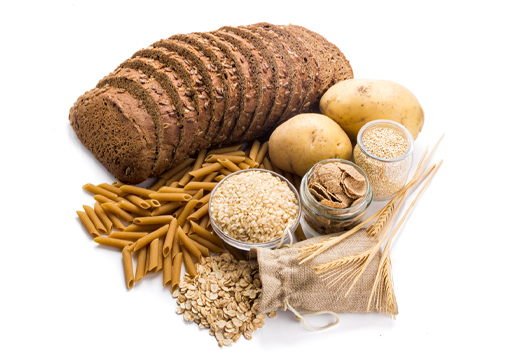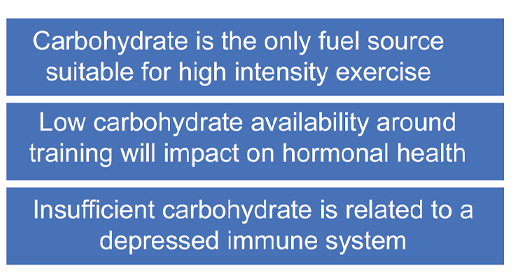7 The importance of carbohydrates to female athletes
Energy intake is an important consideration to prevent RED-S and in particular carbohydrates are a particularly important source of energy for females around training for the reasons shown in Figure 4.
Female hormones are extremely sensitive to nutrient intake and in particular carbohydrates. This is because not providing the body with adequate amounts of carbohydrate can significantly disrupt the production of oestrogen and progesterone (Gastman and Hanan, 2021). As we are aware these hormones are central to the functioning of the menstrual cycle and maintenance of bone health. As such carbohydrate restrictive diets or low carbohydrate high fat (LCHF) diets may not always be suitable for female athletes.
The recommended range for how much carbohydrates an athlete needs is often expressed as a percentage of daily calorie intake, in which case it should be about 55% of total calories but can be up to 75% of total calories for athletes who have a very high training load (Eckerson, 2019). A better way to determine carbohydrate intake need is to calculate it relative to an athlete’s weight.
For exercising females their calorie intake should be between 5–7grams of carbohydrate for every kilogram of body mass. For example, for a 65kg woman, her daily carbohydrate requirement would be around 390g. Research by Gibson et al. (2011) showed that just over 50% of the female football players studied consumed less than 5g of carbohydrate per kg of body mass per day.
It is beyond the scope of this course to provide full nutritional advice but the free course The science of nutrition and healthy eating [Tip: hold Ctrl and click a link to open it in a new tab. (Hide tip)] covers nutrition in detail.


